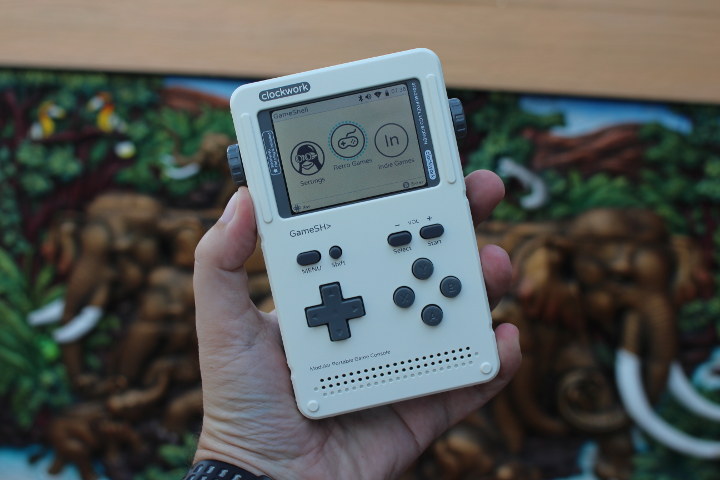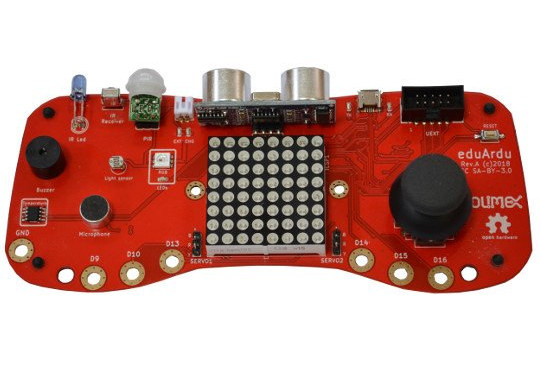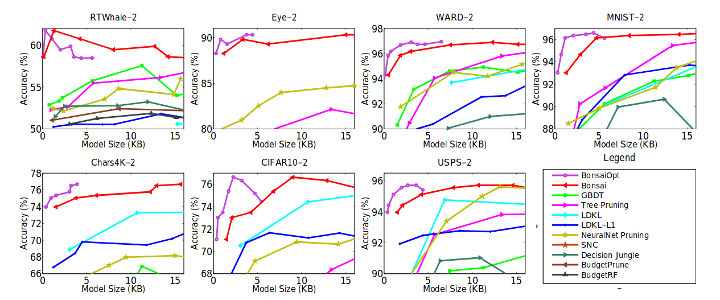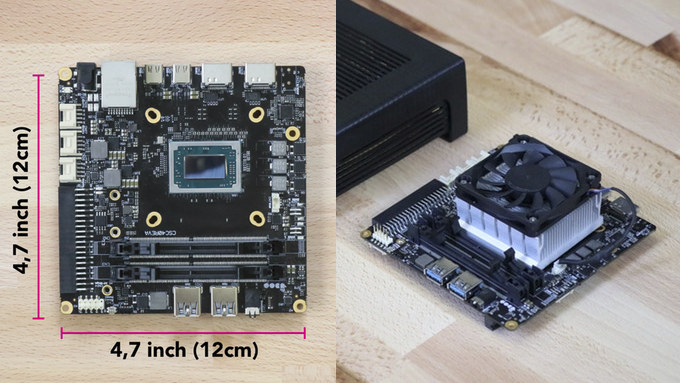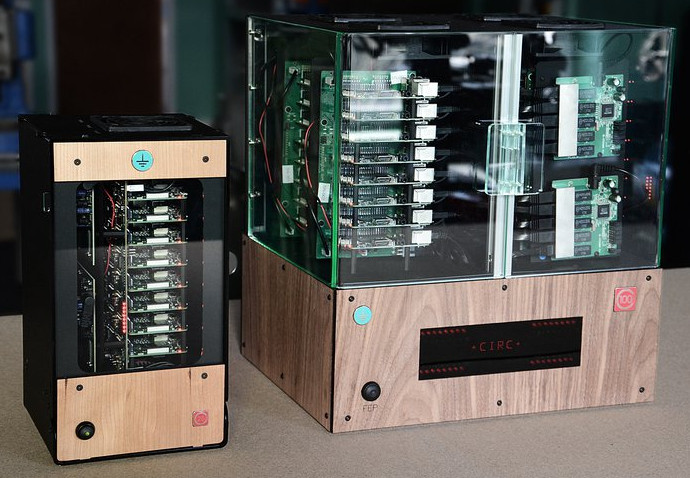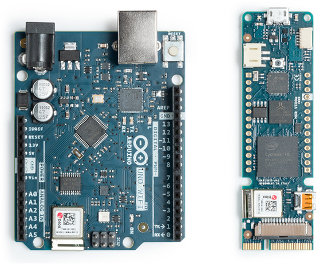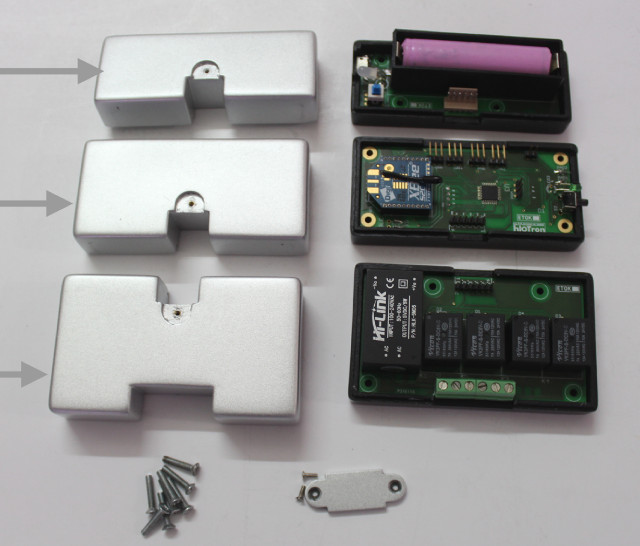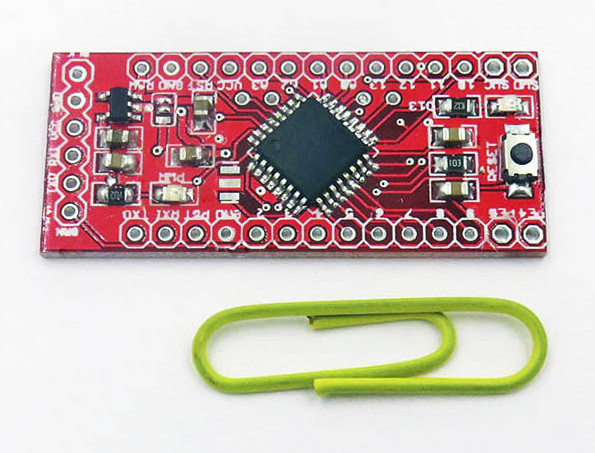ClockworkPi Gameshell is a portable retro gaming console kit designed to be hackable being powered by Allwinner R16 processor to run Linux, as well as an Arduino compatible Atmel AVR MCU. It’s partially open source hardware with PDF schematics, and firmware source code available on Github. The device launched last year on Kickstarter, raised close to $300,000, and started shipping to backers last summer. The company has now sent me a sample for review, so let’s have a look. The first part of the review will be more than just an unboxing, since the game console is meant to be assembled by the end user, and I’ll report my experience doing so. ClockworkPi Gameshell Unboxing The kit comes in a fairly large package that reads “GameShell – Redefine Portable Game Console” and lists the main specifications with quad core Cortex A7 processor, WiFi and Bluetooth connectivity, 1GB RAM, 16GB micro […]
eduArdu is an Open Source Hardware Arduino Learning Board
Olimex has recently launched eduArdu, an open source hardware Arduino compatible board specifically designed for education with plenty of buttons, LEDs, and sensors, as well as tutorials and samples source code to help young and older aspiring makers get started with Arduino programming. eduArdu hardware specifications: MCU – Microchip ATMega32U4 AVR microcontroller (as used in Arduino Leonardo) Display – 8×8 LED matrix display Audio – Built-in microphone, buzzer User Inputs – Joystick with push button, 6 Maykey-Makey type buttons Sensors – Utrasound distance sensor, light sensor, PIR sensor, temperature sensor (-45 to +125C) Expansion Two servo motor connectors UEXT connector Debugging / Programming – 1x micro USB port Misc – RGB LED, IR transmitter, IR receiver, status LED, reset button Power Supply LiPo charger and battery connector 5V via USB port Dimensions – 170 x 75 mm Programming can be done with the Arduino IDE, or Snap4Arduino visual programming IDE. […]
Bonsai Algorithm Enables Machine Learning on Arduino with a 2KB RAM Footprint
Machine learning used to be executed in the cloud, then the inference part moved to the edge, and we’ve even seen micro-controllers able to do image recognition with GAP8 RISC-V micro-controller. But I’ve recently come across a white paper entitled “Resource-efficient Machine Learning in 2 KB RAM for the Internet of Things” that shows how it’s possible to perform such tasks with very little resources. Here’s the abstract: This paper develops a novel tree-based algorithm, called Bonsai, for efficient prediction on IoT devices – such as those based on the Arduino Uno board having an 8 bit ATmega328P microcontroller operating at 16 MHz with no native floating point support, 2 KB RAM and 32 KB read-only flash. Bonsai maintains prediction accuracy while minimizing model size and prediction costs by: (a) developing a tree model which learns a single, shallow, sparse tree with powerful nodes; (b) sparsely projecting all data into […]
UDOO BOLT AMD Ryzen Embedded V1000 SBC Goes for $229 and Up (Crowdfunding)
While Intel has been outing low cost and low power processors with less than 10W TDP over the years with their Bay Trail, Cherry Trail, Braswell, Apollo Lake, and now Gemini Lake processors, AMD has not really ventured into the low power space, and the latest announcements about 10-12W processors was for their Embedded G-Series J Family, which I have not seen in many products. More recently, the company introduced Ryzen Embedded V1000 family of processors with 4 to 8 Zen cores, 4K support, 10 GbE interface, and more with a TDP of 12 to 25W for Ryzen Embedded V1202B & V1605B dual / quad core processors. The latest x86 UDOO board – dubbed UDOO BOLT – will be one of the rare AMD development boards available on the market with pricing starting at $229. Two versions of the board will be available: UDOO BOLT v3 with Ryzen Embedded V1202B, […]
Circumference Datacentre-in-a-Box Features up to 32 Raspberry Pi 3 B+ Managed by a UDOO x86 Ultra Board (Crowdfunding)
We’ve previously seen several clusters made of Raspberry Pi boards with a 16 RPi Zero cluster prototype, or BitScope Blade with 40 Raspberry Pi boards. The latter now even offers solutions for up to 1,000 nodes in a 42U rack. Circumference offers an other option with either 8 or 32 Raspberry Pi 3 (B+) boards managed by UDOO x86 board acting as a dedicated front-end processor (FEP) that’s designed as a “Datacenter-in-a-Box”. Key features and specifications: Compute nodes – 8x or 32x Raspberry Pi 3 B+ boards for a total of 128x 64-bit 1.4 GHz cores max Backplane MCU – Microchip ATmega1280 8-bit AVR microcontroller Serial Comms – FTDI FT4232 quad-USB UART Switched Mode Power Supply Units (SMPSUs): 8x / 32x software controlled (one per compute node) 1x / 4x always-on (microcontroller) HW monitoring: 8x / 32x compute node energy 2x / 8x supply voltage 2x / 8x temperature Remote […]
Arduino Unveils its First FPGA Board with MKR Vidor 4000, Updates UNO WiFi Board with ATmega4809 MCU
Arduino has been busy with new boards announcements in the last week, as after introducing MKR WiFi 1010 and MKR NB 1500 IoT boards with respectively WiFi + Bluetooth, and NB-IoT + eMTC connectivity, the company has now unveiled two new boards. MKR Vidor 4000 is the very first official Arduino board with an FPGA, while UNO WiFi Rev2 is an upgrade of UNO WiFi board featuring the new Microchip ATmega4809 MCU and an U-blox wireless module instead of an ESP8266 chip. MKR Vidor 4000 Preliminary specifications: FPGA part FPGA – Intel Cyclone FPGA with 16K Logic Elements, 504Kbit of embedded RAM and 56 18×18 bit HW multipliers for high-speed DSP System Memory – 8 MB SDRAM Storage – 2 MB QSPI Flash (1MB for user applications) Micro HDMI connector MIPI camera connector mini PCIe connector with up to 25 user programmable pins MCU – Microchip SAMD21 Cortex-M0+ 32bit low […]
hIoTron Modular & Enterprise IoT Development Kit is Designed for Fast Prototyping
hIoTron modular & enterprise IoT development kit is described by the company has a “fully pre-programmed prototyping kit for quickly building and testing your IoT concept” with plug-n-play module allowing for flexible prototyping. Beside the hardware comprises of a gateway and nodes, the kit also integrates with the company’s enterprise IoT Platform enabling easy design of custom mobile application & GUI dashboard. The company offers standard, advanced, and custom kits, but to keep things simple, let’s focus on the content of their standard kit first: Hi-Gate IoT gateway: WiSoC – Texas Instruments CC3200 Arm Cortex-M4 @ 80 MHz with 1MB flash, 256KB RAM Storage – 1MB serial flash, 512KB EEPROM Connectivity 802.11 n/g/n Wi-Fi, 2G GSM/GPRS (optional 3G/4G), ZigBee, BLE 4.0, sub-1GHz RF/NON RF to REST/MQTT gateway Expansion – 2x GPIO port pins, 2x analog port pins Power Supply – 9-12V DC 3x modular Hi-Nodes (up to 25 supported per […]
$1.40 EDMINI Development Board Features LogicGreen LGT8F328P MCU Compatible with ATMega328P/Arduino
Arduino compatible boards are normally using Microphip Atmel microcontrollers, but as we’ve see with GD32 clone of STM32 MCU, some companies are making MCU clones too, usually with some improvements, and LogicGreen designed LGT8F328P micro-controller (mostly) compatible with Atmel ATMega328P micro-controller and adding features such as DAC output, PWM specific features, a computing accelerator (DSC), and others. The MCU also runs at double the clock speed (32 MHz). I found out about the new MCU via Electrodragon selling EDMINI Arduino compatible development board based on LGT8F328P micro-controller for $1.40. The board looks to be a clone of Arduino Pro Mini. Main specifications for EDMINI board: MCU – LogicGreen 8F328 (LGT8F328P) MCU – 99% compatible with ATMEGA328P MCU Expansion – Same pins as Arduino Pro Mini plus SWD/SWC pins, PE4/PE5 pins Misc – On-board power LED, D13 LED, reset button Power Supply – 5V RAW as VCC directly in; regulated 3.3V […]


